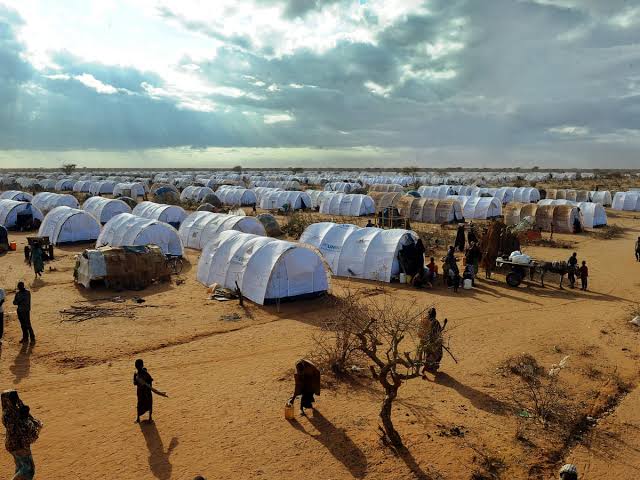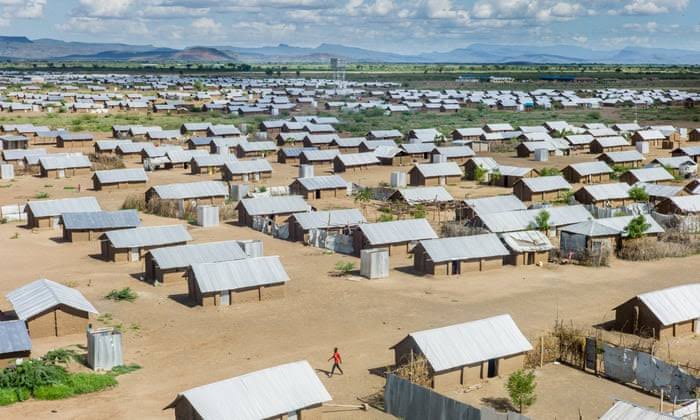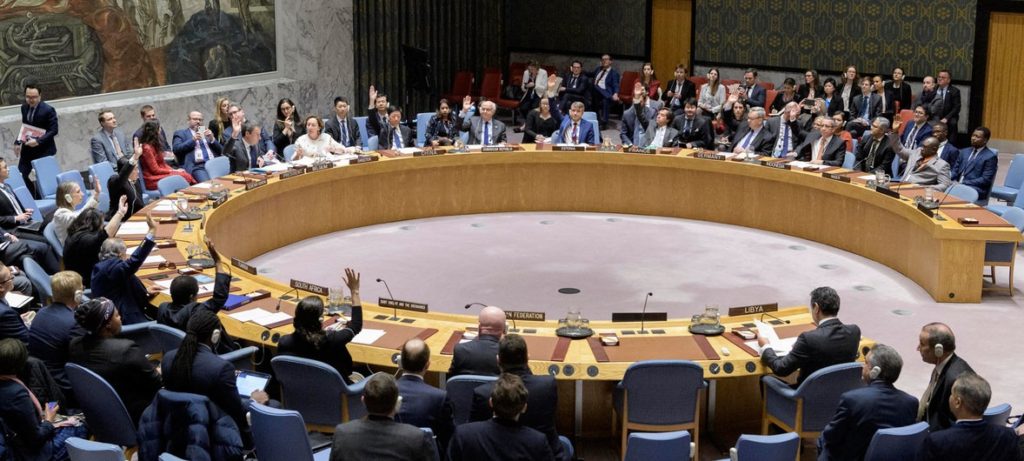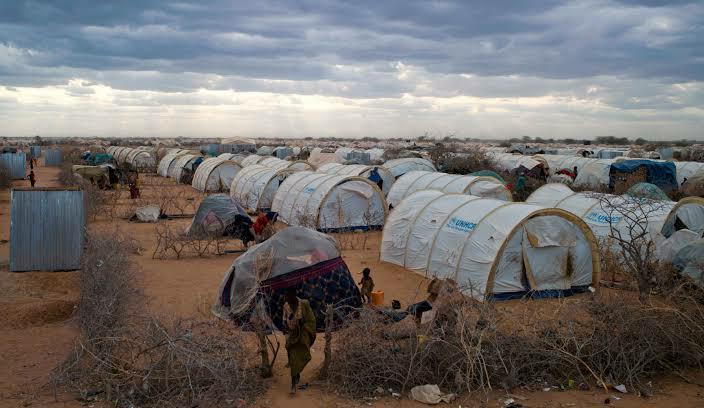NAIROBI, Kenya, Mar 24 – Kenya has issued a 14-day ultimatum to the United Nations High Commissioner for Refugees (UNHCR) to devise a road map for the “definite” closure of the Dadaab and Kakuma refugee camps.
The move according to the Ministry of Interior and Coordination of National Government is critical with Interior Cabinet Secretary Dr. Fred Matiang’i saying, “there is no room for further negotiations.”
It is a move likely to elicit global concerns and more so over the fate of thousands of refugees, the majority being from Somalia- a country that has since severed bilateral relations with Kenya.
But the Kenyan government insists that the decision has been necessitated by national security concerns which the government said it can longer ignore.
It is a complex situation that has left the government torn between its domestic duties and international obligations, some of which are binding and can attract consequences.
The Dadaab refugee complex which consists of three camps: Dagahaley, Ifo and Hagadera, was established in 1991 when refugees fleeing the civil war in Somalia started to cross the border to Kenya.

According to UNHCR as of July 2020, the complex was a host to 218,873 registered refugees.
The Kakuma refugee camp consisting of the Kakuma camp and the Kalobeyei integrated settlement is a host to 196,666 refugees and asylum seekers according to statistics from the UNHCR as of July 2020.

Kenya argues that the camps have become a threat to their very own existence.
According to intelligence reports, the 2 camps have been used as breeding and recruitment ground for terrorists who have gone on to wage attacks across the country including the Westgate Mall attack in 2013, that claimed 67 lives.
Other major attacks said to have been planned in the camps include the 2014 attack in Mpeketoni that saw more than 60 people killed and the Garissa University College attack in 2015 where 148 mostly innocent students’ lives were claimed.
At one point, the Dadaab refugee complex was the biggest in the world before a November 2013 Tripartite Agreement was signed by the Government of Kenya, the Federal Government of Somalia and UNHCR, to provide a framework for the voluntary return of Somali refugees from the country.
Though thousands were repatriated, the process and timelines set by the Kenyan government were not properly executed due to several hitches.
With this, Kenya accused the International Community of not playing its part for failing to consistently contribute to a kitty designated and agreed upon by parties to ease the repatriation process.
In a statement however, UNHCR, thanked Kenya for her generosity, hosting refugees and asylum seekers for several decades.
They however said the short timeframe to close the two camps would have an impact on the protection of refugees in Kenya including in the context of the ongoing COVID-19 pandemic.
“We urge the Government of Kenya to ensure that any decisions allow for suitable and sustainable solutions to be found and that those who continue to need protection are able to receive it,” read the UNHCR statement.
Kenya also expressed frustrations by world powers to designate Al-Shabab as terror organization in the region.
But the country now seeks to push this agenda after it was elected for a period of two years at the United Nations Security Council as a non-permanent representative.

Human Rights organizations have however protested the attempts, saying that a long-term and sustainable solution must first be agreed upon to avoid a humanitarian crisis since repatriating refugees to their war-torn homes threatens their lives.
Somalia remains unstable and while a relative calm witnessed in Mogadishu is often threatened by pockets of terror attacks.
The country is also facing a real political test that would also destabilize the country further if not well handled, after the current government’s term lapsed in February, with no elections held yet due to lack of an agreable formula.
Rights groups have in the past advocated for the integration of refugees into the Kenyan society as well as resettlement to third countries as an option for the stalemate.
But this was pegged on a commitment by the International Community to offer financial and technical support to the most vulnerable refugees.
High-level diplomatic talks are slated for this Friday, to be hosted by Kenya’s Ministry of Foreign Affair and representatives of countries whose citizens are in the two refugee camps.
Frosty relation between Nairobi and Mogadishu might however see Somalia representatives not attend.
Mogadishu has since severed relations with Kenya of allegations of meddling with her internal affairs.
Kenya and Somalia are also engaged in a legal battle involving the delimitation of maritime boundaries on the Indian ocean.
Want to send us a story? Contact Shahidi News Tel: +254115512797 (Mobile & WhatsApp)


